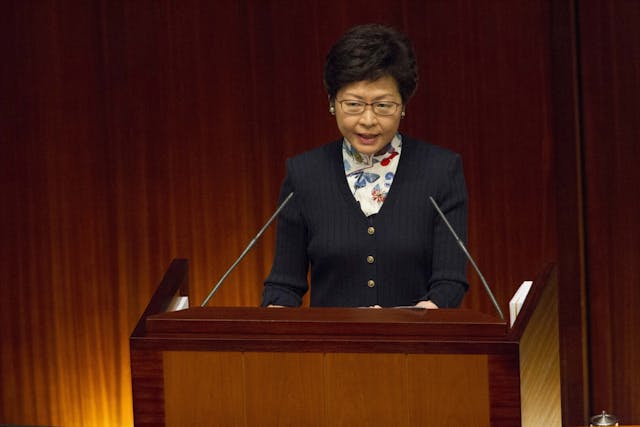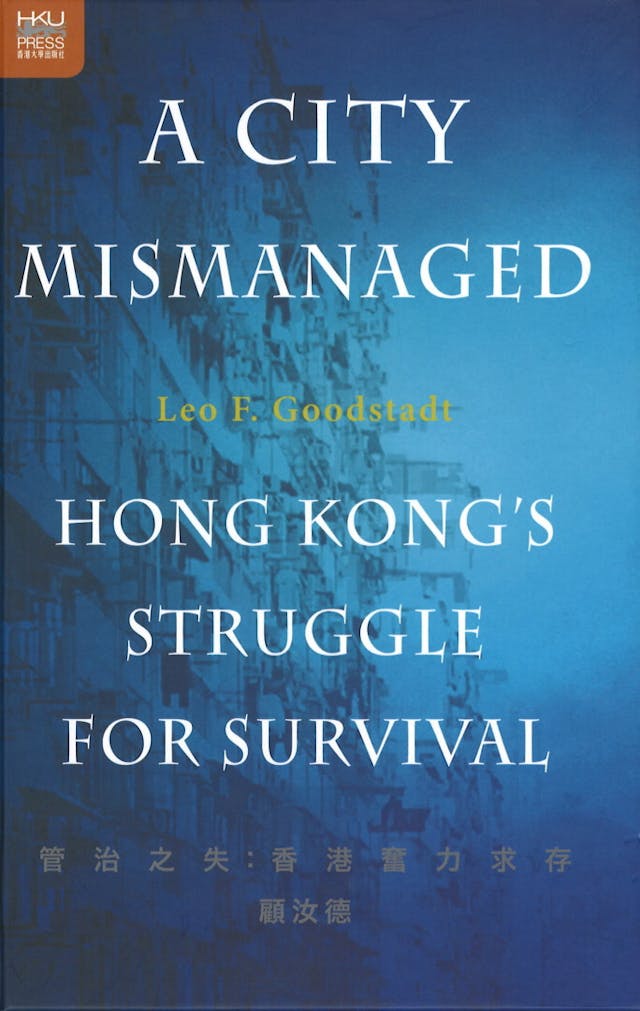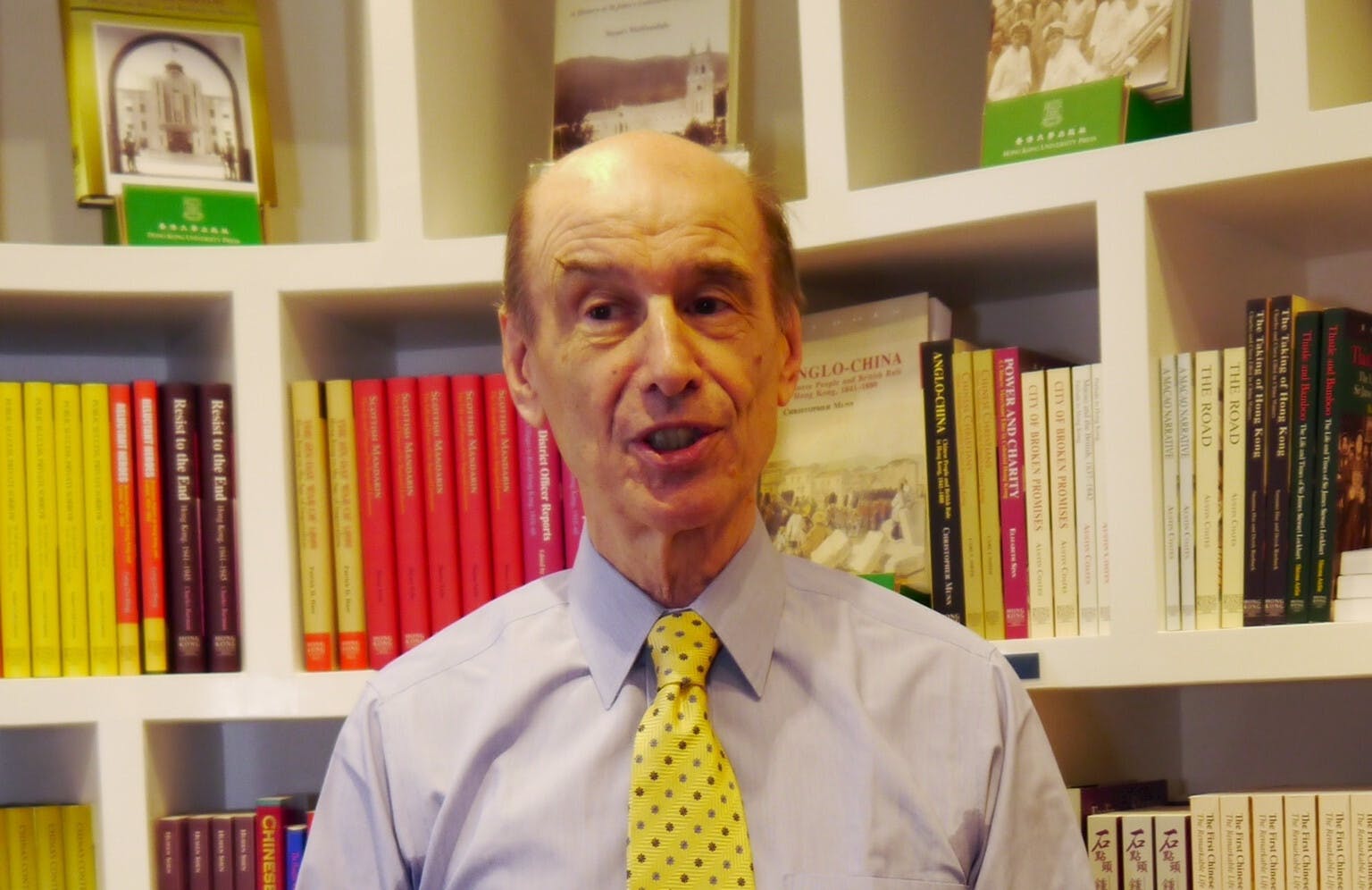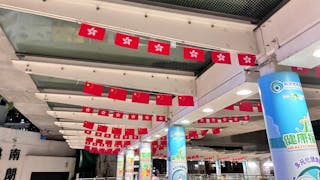編按:前中央政策組首席顧問顧汝德今年出版新書A City Mismanaged:Hong Kong’s Struggle for Survival(譯名為《管治之失:香港奮力求存》,暫未有翻譯本),談及特區政府管治失誤之處。本社記者以電郵筆訪這位身處愛爾蘭、但依然關心香港事務的都柏林三一學院教授,讓他從政策創新與統籌辦事處談起,剖析香港問題,原文問答在中文版本之後。
問:灼見名家
答:顧汝德
問:林鄭月娥把中央政策組改組成政策創新與統籌辦事處。作為前中央政策組首席顧問,您對此有甚麼看法?這是個明智之舉嗎?
答:中央政策組成立於1989年,那年的世界是非常不一樣的。90年代,香港的政治、經濟都經歷了翻天覆地的改變。中策組的職能是協助政府部門和機構辦事處排難解紛。這一支小團隊主要提供「危機預防」、「過渡管理」和「創新支援」的服務。多年來,中策組經歷過六四事件、新選舉制度、社會福利署及醫院管理局成立等重大事項。中策組的「客戶」(總督、政務司及財政司)直接與中策組接觸,這些「客戶」期望中策組能夠協助他們迅速制訂、推出政策。除此,中策組的責任更包括起草編寫《施政報告》及《財政預算案》。
為了迎合特區政府不同的要求,中策組的議事規劃、組織架構都需要因應調整。打從1989至1997這段時期開始,整個世界已經發生了很多重大變化。我估計林鄭月娥女士覺得到了2018這個新時期,原來的中策組已無用武之地,遂成立政策創新與統籌辦事處來代替它。身為特首的林鄭是最了解自己要為香港作出什麼改變,我無法提出任何批評。

問:儘管您離開香港已經有20年了,但您仍是十分關心目前香港的事務,是什麼讓你仍是熱衷於香港社會事務?
答:老實說,我從未「離開」過香港。由於工作的原因,我每年都需要到歐洲待幾個月,我仍然「住」在香港。我幾乎每天都在搜尋、撰寫、諮詢香港的事務。每當我離開香港,我總覺得自己在異鄉,是個「外國人」,畢竟除了香港,我對別的地方不是很了解。
對我來說,香港是個非常特別的地方。香港人有一種了不起的素質,我見證了香港人歷經挑戰,仍是生存至今。最顯而易見的就是香港的經濟發展。香港當年成為全球紡織中心,並沒有獲得外資支持,完全是靠本地銀行融資。從1979年開始,香港成為外國投資者進入大陸的跳板和最大的人民幣離岸市場。儘管香港人得到的報酬不高,但香港的勞動力可說是全球最具生產力的。
社會發展方面,這座城市也讓人印象深刻。香港的衛生水平高,無論是住在寮屋區的居民,還是飛虎隊隊員,都十分注重衛生。不僅如此,香港的犯罪率也很低。跟多數其他城市比較,香港真算得上是天堂。
個人來說,我很慶幸自己能在香港生活。若我遇上了什麼麻煩,陌生人也會好心地幫我。我的同事總是對我友好,跟我合作無間。我的中國親戚讓我覺得自己在一個親族中生活是一種恩典。我的孩子每每談到他們在本地學校的老師和同學,都會覺得份外驕傲和高興。從亞洲電視每周的時事節目主持,到中策組的首席顧問;從港大講師到恆生銀行顧問,我在香港得到的工作機會,也是其他地方無法比擬的。
我從香港得到一切,覺得自己也有責任回饋香港人。我希望自己能夠捍衛香港人的利益、改善他們的生活水平。
問:您一直批評四位香港特首的缺失。香港變得如此管理不善,是否因為特首做得不好呢?您認為還有什麼其他因素嗎?
答:我的新書詳細說明了一眾「臣子」的弱點和他們犯過的嚴重錯誤。然而,特首是那個選拔或解僱「臣子」(得到北京批准後)的人,一旦政府行政失當,特首也不得不成為眾矢之的了!
問:您是否認為中國當局要為香港的失敗負上最大的責任?
答:當然不需要,國家主席和國務院總理都非常尊重港人治港和《基本法》。我的新書指出,中央政府不時呼籲香港特區政府改善施政,但通常被忽略。令人欣慰的是,國家領導人明白,即使特區政府施政效益不彰,港人仍應該設法自行解決本地的問題。這是給港人高度的信任,是香港在自治、開放、「資本主義」經濟中存在的最佳辦法。
問:您介意評論梁天琦案嗎?他被判囚6年,您是否覺得判得太重了?香港社會運動的發展,會不會受案例影響而走下坡?
答:年輕人被判囚總是令人悲傷的,畢竟這會影響他們的人生。然而,為了確保香港的法治制度能夠維持,我們須接受法官的裁決。如果認為判得太重,我們有上訴機制;若法官曲解法律,我們也有上訴機制。我們要記住,我們的法官因為判案、量刑、種族正遭人身攻擊,這顯示我們不能把法治視為理所當然的事。
香港的社會運動不再只是關乎「抗議」,也不僅只有年輕人才支持社運。事實上,整個香港社會都意識到需要捍衛「社會公義」、香港的生活素質;更要確保香港政府在《基本法》的保障下,政府有責任推動優質教育、醫療、社會保障等服務。
問:香港青年基本都是對中國大陸所提倡的價值十分反感,這是否會影響香港的未來呢?有什麼方法可以解決呢?
答:近年,大陸官方媒體也在批評內地學生對共產黨的意識形態不感興趣,厭煩政治學習。在香港,學生可以公開批評政治,這也引起大陸方面的強烈批評。然而對香港來說,這並不是新挑戰。若回顧1979年之前北京對香港及港人的憤怒譴責,我們可以看到今天國家領導人是怎樣容忍一個如此「自治」的香港。踏入21世紀,香港市民示威盛行,又引起大陸的強烈批評,然而港人的生活方式依舊未變。香港人都很了解自己是中國人,也從沒打算分裂國家。鼓吹「港獨」最容易引起北京關注,也最容易佔據傳媒版面,而值得關注的是,示威者大多都是成年人。
Q: Carrie Lam turns The Central Policy Unit into Policy Innovation and Co-ordination Office, as the previous head of CPU, what do you think? Is it a good policy?
A: The world was very different in 1989 when the CPU was established. Hong Kong faced very big changes, politically and in the economy, during the 1990s. The CPU’s job was to find solutions for challenges which departments and bureaux could not handle. The CPU’s small team provided “crisis prevention”, “transition management” and “support for innovation”. Among its assignments were: fall-out from “June 4” during 1989; the new election system; the launching of CSSA and the Hospital Authority etc. The CPU’s “clients” (Governor, Chief Secretary and Financial Secretary) dealt with the CPU directly and expected the team to come up with solutions very fast which could then be implemented quickly. In addition, the CPU took total responsibility for drafting the Policy Address and Budget.
The Special Administration Governments have had a different set of requirements, and so the CPU’s schedule and structure were altered to adapt to the requirements of each Chief Executive. The world has changed since 1989-97, and I assume that Mrs Lam believes that a CPU is no longer useful and that a Policy Innovation and Co-ordination Office is what Hong Kong needs in 2018. She is in the best position to know what she needs, so I have no criticism to make.
Q: You are still showing care and concern about Hong Kong’s current affairs, even after 20 years since you left Hong Kong. Why are you so enthusiastic about it?
A: Actually, I have not “left” Hong Kong. It has been necessary because of the work I do to spend some months each year in a European base. But only temporarily. I still “live” in Hong Kong. Most of every day is spent researching, writing, consulting on Hong Kong affairs. I still feel a “foreigner” when I am away from Hong Kong because I do not really understand anywhere except Hong Kong.
Hong Kong is so special for me because of the wonderful quality of its people. I have been witness to so many challenges that they have survived. The most obvious is the economy. Hong Kong became a world textile centre, financed by its own banks and with no foreign aid. From 1979, it has been the biggest source of foreign investment on the Mainland and the biggest offshore RMB market. Its workforce is among the most productive in the world, no matter how badly paid.
Socially, the city is most impressive. Its health standards are outstanding, thanks to the cleanliness of families, whether living in squatter huts or SDUs. Crime rates are very low. As a society, Hong Kong is truly a paradise compared with most cities.
As an individual, I feel that I am very fortunate to live in Hong Kong. Strangers are kind and helpful to me whenever I have a problem. My colleagues have always been friendly and cooperative. My Chinese relatives provide me with an extended family which is a privilege. My children look back on the teachers and classmates in their “local” schools with pride and pleasure. I have been given career opportunities that I could not hope for anywhere else: from interviewer for ATV’s weekly “Newsline” to CPU Head, from HKU lecturer to Hang Seng Consultant, and many other good jobs.
I owe everything to Hong Kong. I feel that I have a duty to repay the Hong Kong people by doing whatever I can to protect their interests and improve the quality of their lives.
Q: You are keeping criticism on the failure of four Chief Executives for whom doing not well, is it the main factor that make Hong Kong mismanaged? Has any other key factors do you concern?
A: My book also provides detailed evidence of the weaknesses and serious mistakes of “ministers”. But Chief Executives select and dismiss their “ministers” (subject to Beijing’s approval). For that reason, the Chief Executives must be blamed for the failures of their administrations.
Q: Do you think that Chinese authorities should take most of the responsibilities on Hong Kong’s failure?
A: Definitely not. Presidents and Premiers respect Hong Kong’s autonomy and the Basic Law. The book shows that they call on Hong Kong’s government to improve their performance from time to time, but are usually ignored. It is very reassuring that the nation’s top leaders understand that somehow Hong Kong people will manage to overcome their own local problems, even if the administration is not good. This trust at the highest levels in Hong Kong people is the best formula for Hong Kong’s survival as an autonomous, open, “capitalist” economy.
Q: Would you mind commenting on the case of Edward Leung Tin-kei? Is The penalty of six years in prison too harsh? Will the social movements in Hong Kong die down because of the decree of court?
A: It is always sad to see a young person given a prison sentence that will probably ruin their lives. At the same time, for Hong Kong to maintain the rule of law, we have to accept a judge’s decisions. If sentences are regarded as excessive, we have an appeal system. If the law has been misinterpreted by a judge, there is also an appeal system. We need to remember that judges are now being attacked personally more and more for verdicts, sentences and race, which shows that we cannot take the rule of law for granted.
Social movements in Hong Kong are no longer just about “protesting”. Nor are they supported only by young people. The community as a whole realises that it needs to defend “social justice”, Hong Kong’s quality of life, the responsibility of the government for ensuring the high standards of education, health, welfare and other services which Hong Kong can afford and which the Basic Law promises.
Q: Hong Kong youngsters generally shows resistance to the values of Mainland China, will it affect the future of Hong Kong? Is there any way out?
A: In the recent past, the official Mainland media have complained about Mainland students who are not interested in the Party’s ideology and find political studies boring. In Hong Kong, students can openly express their political criticism, which causes the Mainland to complain very strongly. However, this is not a new challenge for Hong Kong. If we go back to the angry condemnations of Hong Kong and its people that Beijing published constantly until 1979, for example, we can see how the nation’s leaders have tolerated a very “autonomous” Hong Kong in the past. In this century, mass protests have taken place, followed by strong criticism from the Mainland, yet life in Hong Kong continues normally. The Hong Kong community knows very well that they are Chinese and have never had any desire to break away from the nation. Calls for “independence” are an easy way of getting Beijing and media coverage. It is important to note that a large number of the protestors are adults.

書名:A City Mismanaged : Hong Kong’s Struggle for Survival(管治之失:香港奮力求存)
作者:顧汝德
出版社:香港大學出版社
出版日期:2018年5月
受訪者簡介
前中央政策組首席顧問(1989至97年),現為都柏林大學聖三一書院(Trinity College, University of Dublin)商學院兼任教授,香港大學榮譽院士。
他早年在英國曼徹斯特大學和牛津大學主修經濟學,1962年來港從事學術研究,1964年任香港大學經濟系講師,此後曾任香港大學法律學院名譽講師和亞洲研究中心名譽研究員。他在1989年獲任命為當時新成立的中央政策組首席顧問,在任八年間就一系列複雜的政治、經濟和社會問題進行研究,並為港英政府出謀獻策。
在加入政府前,他是知名商業機構的經濟顧問,亦曾出任《遠東經濟評論》(Far Eastern Economic Review)副總編輯、英國《泰晤士報》(The Times)和財經雜誌Euromoney的駐香港特派記者,因寫下見解精闢的報道而備受注目。
顧汝德著作甚豐,曾出版眾多學術研究文章和著作,闡述中國和香港的經濟及政治發展形勢。著作包括:《官商同謀:香港公義私利的矛盾》、《嚴防金融海嘯重臨:香港監管文化的啟示》、《富中之貧:香港社會矛盾的根源》。




































